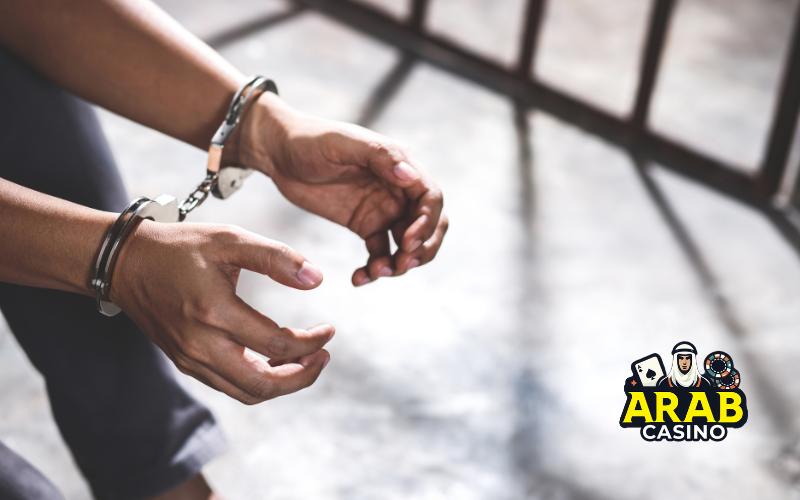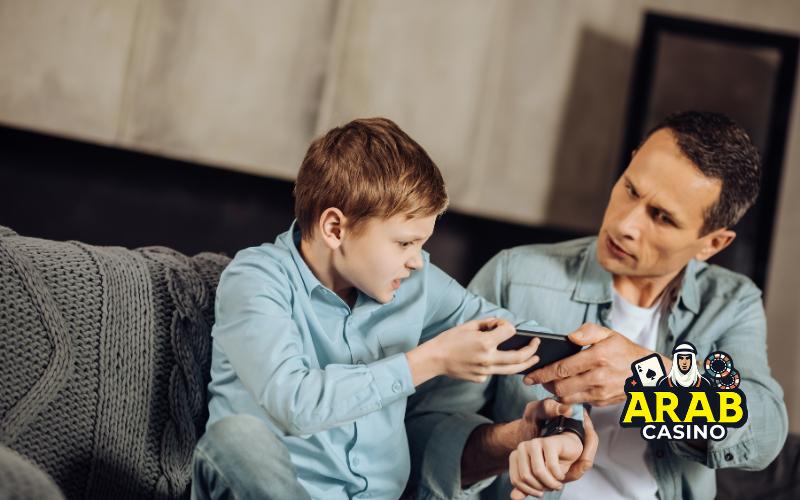Consequences of Underage Online Gambling
Online gambling is enjoyable if you play responsibly. However, if you are a teenager and play online casino games or bet on sports, you have the risk of the following:
- Legal penalties
- Gambling addictions affect mental health
- Negative effects on academic performance
- Bad relationships with family and friends
Legal Penalties

Underage gambling is illegal, and the penalties can vary depending on location. In the United Arab Emirates, for example, gambling is strictly prohibited. Participating in online gambling as a minor can lead to significant fines or even legal repercussions for guardians who allow it. I am telling parents that this can have a lasting impact on their son or daughter.
Gambling Additions Affect Mental Health
A 2022 study published by Link Springer states that underage gamblers are more susceptible to developing gambling addictions. So, addiction can manifest in various ways, impacting mental well-being. Adil is the son of my friend, a bright 16-year-old student in Dubai who used to spend his afternoons playing football with his friends.
Then, he discovered an online gambling site. At first, it was just a bit of fun with small wagers. But Adil experienced a big win, and the thrill was intoxicating. He started chasing that feeling, neglecting his schoolwork and spending increasing amounts of time gambling online.
Moreover, he even lied to his parents about his activities, feeling ashamed and isolated. So this behavior led to anxiety and depression as Adil felt overwhelmed by the need to gamble and the fear of getting caught.
Negative Effects on Academic Performance
Research indicates a concerning trend of increasing underage online gambling. A study conducted in Spain’s Galician region, involving 3772 adolescents aged 12-17, revealed that 6.5% are online gamblers.
These online gamblers exhibited higher rates of problematic internet use, including active sexting, cyberbullying, and contacting strangers online. They also demonstrated elevated impulsiveness, reduced assertiveness, and a lack of parental supervision.
A 2018 study highlights the risks associated with online gaming, suggesting it may be an additional factor in problematic gambling behavior among adolescents. These troublesome behaviors linked to internet use, gaming, and gambling appear interconnected.
These findings underscore that underage online gambling can lead to distractions from studies, impulsive behaviors, and broader problematic internet use. Therefore, all of these can adversely affect academic outcomes.
Bad Relationships with Family and Friends

When a young person gambles online, they may lie or hide their behavior from loved ones. It is usually about the amount of time spent gambling, the amount of money wagered or even stolen money to fund the habit. So, the constant deception erodes trust within the family and friend circle. Likewise, it can cause:
- Emotional strain preventing you from socialization
- Financial problems leading to arguments with family members
- Feelings of isolation and loneliness
How To Prevent Underage Online Gambling
Underage online gambling is a serious concern, but there are steps you can take to protect your children. The approach combines technological tools, open communication, and a combined effort between parents, schools, and communities.
Parental Control Software and Monitoring
Parental control software is a valuable tool in your fight against underage gambling. These programs offer features like website filtering, time limitations, and activity monitoring. You can customize these features to restrict access to gambling websites and monitor your child’s online activity for any red flags, such as gambling-related searches or unfamiliar websites visited at unusual times.
It’s important to remember that software is not a foolproof solution. Active supervision is still essential. Monitor your child’s browsing habits and online activities, keeping an eye out for potential gambling activity.
Educate Your Child About the Risks
Open communication is key in preventing underage gambling. Tailor your discussions about the dangers of gambling to your child’s developmental stage. Address the risks of addiction and the potential for financial ruin associated with underage gambling. Help your child analyze gambling-related advertisements, teaching them to recognize manipulation techniques and deceptive promises of easy winnings.
Create a Safe Online Environment
Establish clear ground rules for internet usage in your household. These rules should include time limits, restrictions on age-appropriate websites, and consequences for breaking the rules. Whenever possible, keep computers and devices in shared family areas. So this will allow for subtle monitoring and encourage open internet use.
Promote Responsible Gambling
Have honest and open conversations with your children about gambling. Acknowledge that gambling is an adult activity with inherent risks and that it’s illegal for them to participate. Instead of simply saying no, offer healthy alternatives. Encourage participation in sports, hobbies, and social activities that provide a sense of excitement and achievement without the risks associated with gambling.
Adults should also be mindful of their own gambling habits if they choose to participate at all. Never gamble in front of children, and maintain an open attitude towards maturely discussing your own choices. Responsible gambling behavior by adults serves as a powerful role model for children.
Collaboration Between Parents, Schools, and Communities
If you suspect your child may have a gambling problem, don’t hesitate to seek help. Reach out to school counselors, social workers, therapists, or support groups specializing in gambling addiction. Schools can play a crucial role in prevention by implementing programs that educate students about the risks of gambling and promote healthy decision-making.
Final Words About Gambling Under 18
Underage gambling may seem like harmless fun, but the consequences are devastating. It’s never too early to have honest conversations about the dangers of gambling. By working together, parents, teens, schools, and communities can protect young people and help them develop healthy online habits that will benefit them throughout their lives.





